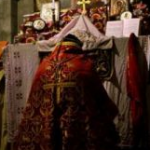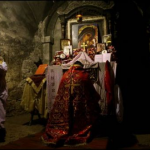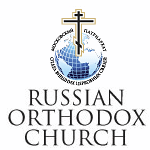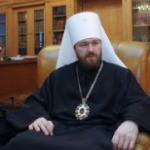Deprecated: trim(): Passing null to parameter #1 ($string) of type string is deprecated in
/home/aoiusa/public_html/wp-content/plugins/sexybookmarks/public.php on line
388
Deprecated: trim(): Passing null to parameter #1 ($string) of type string is deprecated in
/home/aoiusa/public_html/wp-content/plugins/sexybookmarks/public.php on line
394
Deprecated: trim(): Passing null to parameter #1 ($string) of type string is deprecated in
/home/aoiusa/public_html/wp-content/plugins/sexybookmarks/public.php on line
400

Roman Catholic Apb. Chaput
Although written for a Catholic audience, the ideas expressed by Archbishop Chaput apply to Christians across the board. Take special care reading the section “A Less Friendly America” where Abp. Chaput warns us the coming hostility towards religion and how anti-religionists will use the power of the state to diminish the cultural influence of Christianity.
Source: National Catholic Register
Renewing the Mission of Catholic Charities
Archbishop Chaput on Catholic identity and the future of the Church’s social ministry.
The following is Archbishop Chaput’s June 21 address to the Catholic Social Workers Association.
We’re here today — or anyway, we should be here today — because we believe in Jesus Christ. Everything in Catholic social ministry begins and ends with Jesus Christ. If it doesn’t, it isn’t Catholic. And if our social work isn’t deeply, confidently and explicitly Catholic in its identity, then we should stop using the word “Catholic.” It’s that simple.
Faith in Jesus Christ — not as the world likes to imagine him, but the true Son of God as the Catholic Church knows and preaches him — is the only enduring basis for human hope. Real hope has nothing to do with empty political slogans. It has nothing to do with our American addictions to progress or optimism or positive thinking.
The Epistle to the Hebrews speaks of faith as “the assurance of things hoped for; the conviction of things not seen” (11:1). Faith alone makes real hope possible. Georges Bernanos described the virtue of hope as “despair overcome.” It’s the ability to see clearly the suffering and the injustice in the world, and yet to trust in the goodness of God. It’s the capacity to see human weakness and evil at their worst, and yet to trust in the dignity of the human person because we believe in a loving Father; a Father who created and sustains us, and who redeems us with the blood of his own Son.
Because we believe, we can trust; and because we can trust in God’s love, we can take the risk of loving and giving ourselves to others. This trinity of faith, hope and love echoes the nature of God himself. It’s the economy of all Christian social action. And remembering this simple fact — our basic identity — is a good way to begin our conversation.
I want to focus my remarks today on the “Catholic” identity of Catholic Charities and, by extension, the identity of all Catholic social work. I’d like to offer three quick points at the outset.
Here’s my first point: What we do becomes who we are. This is pretty obvious when we speak about individuals. A man who does good usually becomes good — or at least becomes better than he was. A man who struggles with his fear and overcomes it and shows courage gradually becomes brave. And a man who steals from his friends or cheats his company, even in little things, eventually becomes a thief. He may start as a good man with some unhappy appetites and alibis. But unless he repents and changes, the sins become the man. The habit of stealing or lying or cowardice or adultery reshapes him into a different creature.
We need to realize that what applies to individuals can apply just as easily to institutions and organizations. The more that Catholic universities or hospitals mute their religious identity, the more that Catholic social ministries weaken their religious character, the less “Catholic” they are, and the less useful to the Gospel they become.
Here’s my second point: The individual is sacred but not sovereign. For Catholics, every human person — no matter how disabled, poor or flawed — has a unique, inviolable dignity. That “sanctity of life” and the basic rights that go with it begin at conception and continue through natural death.
But civil society consists not just of autonomous individuals. It also consists of communities. Those communities also have rights. Catholic institutions are extensions of the Catholic community and Catholic belief. The state has no right to interfere with their legitimate work, even when it claims to act in the name of individuals unhappy with Catholic teaching. The individual’s right to resent the Church or reject her beliefs does not trump the rights of the Catholic community to believe and live according to its faith.
To put it another way, Catholic ministries have the duty to faithfully embody Catholic beliefs on marriage, the family, social justice, sexuality, abortion and other important issues. And if the state refuses to allow those Catholic ministries to be faithful in their services through legal or financial bullying, then as a matter of integrity, they should end their services.
A Less Friendly America
That brings me to my third point, and it gives context to the other two: A new kind of America is emerging in the early 21st century, and it’s likely to be much less friendly to religious faith than anything in the nation’s past. And that has implications for every aspect of Catholic social ministry. G.K. Chesterton once described the United States as “a nation with the soul of a Church.” Another British Catholic, the historian Paul Johnson, noted that America was “born Protestant,” but it was never a Christian confessional state. America was something unique in modern history. It was a moral society without an established Church.
America could afford to be “secular” in the best sense precisely because its people were overwhelmingly religious. The Founders saw religious faith as something separate from government but vital to the nation’s survival. In the eyes of Adams, Washington and most of the other Founders, religion created virtuous citizens. And only virtuous citizens could sustain a country as delicately balanced in its institutions, moral instincts and laws as the United States.
As a result, for nearly two centuries, Christian thought, vocabulary and practice were the unofficial but implicit soul to every aspect of American life — including the public square. The great Jesuit scholar Father John Courtney Murray put it this way: “The American Bill of Rights is not a piece of 18th-century rationalist theory; it is far more the product of Christian history. Behind it one can see not the philosophy of the Enlightenment, but the older philosophy that had been the matrix of the common law. The ‘man’ whose rights are guaranteed in the face of law and government is, whether he knows it or not, the Christian man, who had learned to know his own dignity in the school of Christian faith.”
The trouble is that America’s religious soul — its Christian subtext — has been weakening for decades. The reasons for that erosion would need another day and another talk. But I do think we’re watching the end of a very old social compact in American life: the mutual respect of civil and sacred authority and the mutual autonomy of religion and state. That’s dangerous, and here’s why.
American life has always had a deep streak of unhealthy individualism, rooted not just in the Enlightenment, but also in Reformation theology. In practice, religion has always moderated that individualism. It has given the country a social conscience and a common moral compass. Religion has also played another key role. Individuals, on their own, have very little power in dealing with the state. But communities, and especially religious communities, have a great deal of power in shaping attitudes and behavior. Churches are one of those “mediating institutions,” along with voluntary associations, fraternal organizations and especially the family, that stand between the power of the state and the weakness of individuals. They’re crucial to the “ecology” of American life as we traditionally understand it.
And that’s why, if you dislike religion or resent the Catholic Church, or just want to reshape American life into some new kind of experiment, you need to use the state to break the influence of the Church and her ministries.
In the years ahead, we’re going to see more and more attempts by civil authority to interfere in the life of believing communities. We’ll also see less and less unchallenged space for religious institutions to carry out their work in the public square. It’s already happening with Catholic hospitals and adoption agencies, and even in the hiring practices of organizations like Catholic Charities. One thing this now requires is that no one in Catholic social work can afford to be lukewarm about his faith or naive about the environment we now face — at least if we want Catholic social work to remain Catholic.
The Catholic Nature of Charity
Having said all this as a kind of preface, I want to return to the particular focus of my remarks: What exactly does it mean when we say that a social ministry is “Catholic”? Dr. Jonathan Reyes, the CEO of our Catholic Charities here in Denver, gave me the following answer, and it’s a good one. A social agency is “Catholic” in two main ways. Structurally, it’s an arm of the local Church and organic to her mission. And evangelically, it’s a witness to the commandment given to us by Jesus Christ to love God first and above all and then to love our neighbors as we love ourselves.
Being faithful to Catholic teaching isn’t something optional for a Catholic social worker. It’s basic to his or her identity. We need to remember that Catholic belief is much more than a list of dos and don’ts. It involves much more than simply obeying a Catholic moral code — although it certainly includes that. Catholic teaching is part of a much larger view of the human person, human dignity and our eternal destiny. The content of this teaching comes from God through his son, Jesus Christ. It’s defined by the universal Church and then preached, taught and applied by the local bishop. The faith of the Church is constitutive of Catholic social ministry. It’s not a kind of humanitarian modeling clay we can shape to our personal preferences; and the power and consistency of Catholic social witness collapse when we try to do that.
The basis of Catholic social doctrine is really quite straightforward. Speaking to Caritas International earlier this year, Father Raneiro Cantalamessa, OFM Cap., the Pope’s personal preacher, said that “Christianity doesn’t begin by telling people what they must do, but what God has done for them. Gift comes before duty.” In other words, our love for God and our love for neighbor begin as responses to love we’ve already received.
As our celebration of Trinity Sunday teaches us, Christian charity flows from having first experienced the love of God ourselves. For Christians, the ultimate purpose of every human being is fulfilled by knowing God’s love and being with God for eternity. All Christian charity is practiced with this goal in mind. Therefore, to be authentic, Christian charity must be free and must be motivated to share God’s love with others, in addition to offering material aid. Christian charity is always both a material and a religious act.
What that means for the charitable worker is this: As Benedict XVI says in Deus Caritas Est: To fully share the love of God with others, a person must herself “be moved by Christ’s love [and be] guided by faith, which works through love.” To put it another way, we can’t give what we don’t have. We also need to realize that every act of Christian charity is a spiritual enrichment for the helper as well as the receiver of material aid. Grace flows both to the receiver and the giver, including those outside the organization who support the work of charity through prayer and almsgiving.
Does a person need to be Christian to work for Catholic Charities? No. Many aspects of Catholic social work can be shared by all people of good will, and cooperating with others in this work is a very good thing — so long as the Catholic heart of the ministry remains zealous and true. Christian charity doesn’t require that we proselytize, that we speak out loud about our love for Jesus Christ and his love for us, in every circumstance. Sometimes, for prudential reasons, this is unwise. And Christian truth, even when openly professed, should never be offered in a coercive way. But where possible and fruitful, acts of Christian charity should clearly witness our Catholic faith and our love for Jesus Christ.
Is there a specifically Christian method to Christian charity? Again, no. For example, the social sciences give us some very good tools for helping people to deal with anger or to parent more effectively. As useful tools, these practical techniques greatly help the work of Christian charity. And it makes obvious sense for Christian charity to use the best means available from whatever source, so long as they respect Catholic teaching.
Ideals for Social Ministry
To sum up, all acts of Christian charity should be offered as a means of communicating to other people the highest form of charity — the knowledge of Jesus Christ and his love for them. From this basic understanding we can draw some important ideals for Catholic social ministry in general and Catholic Charities organizations in particular. These are not exhaustive, and I look forward to hearing your own thoughts as well.
First, every act of Catholic social work should function faithfully within the mission and structures of the local diocese, with special respect for the role of the bishop. All such social work should be true to Scripture, Church teaching and the Code of Canon Law.
Second, every Catholic social ministry, along with providing material aid, should allow for the possibility of verbally professing the Gospel, as prudence permits.
Third — and this should be obvious — no Catholic charitable worker should ever engage in coercive proselytization. He or she should always embody respect for an individual’s freedom and be governed by humility and common sense.
Fourth, every Catholic social ministry should insist on the best professional skills from its staff and should use the best professional means at its disposal in serving others — so long as those skills and means reflect the truth of Catholic moral teaching.
Fifth, Catholic Charities and similar Catholic organizations should always provide opportunities for prayer for their employees and volunteers. Prayer is integral to Christian charity, both as the means of experiencing the love of God ourselves and of seeking God’s help — without which none of our works can prosper.
Sixth, every Catholic social ministry — guided by charity and prudence, but also by courage — should bear witness to the truth of Jesus Christ to the wider community. This includes giving a public voice to the rights of the poor, the homeless, the disabled, the immigrant and the unborn child, consistent with the particular nature of its work.
Seventh, every Catholic Charities organization, both through action and instruction, should seek to deepen an awareness of Catholic social teaching within the Christian community.
Eighth, Catholic social work always should involve both an effective outreach to individuals struggling with poverty and a frank critique of the structural causes of poverty through the lens of Catholic social teaching.
Ninth and finally, Catholic social ministries should welcome opportunities to work with other individuals, groups and social agencies in ways that are compatible with Catholic teaching. But we need to stay alert to the fact that cooperation can easily turn Catholic organizations into sub-contractors of large donors — donors with a very different anthropology and thus very different notions of authentic human development. And that can undermine the very purpose of Catholic social work.
Given the state of Catholic charitable organizations, pursuing these ideals will involve serious cultural change within many Catholic agencies. That will take time. It will also demand people who, first, believe in real human development, as understood in the light of Jesus Christ and the Catholic faith; and, second, who have the courage to speak the truth and act on it confidently, despite the “humanism without God” that shapes so much modern social-service thinking. There is no such thing as “humanism without God.” It never endures, and it ends by debasing the humanity it claims to serve. The record of the last century proves it again and again in bitterly painful ways.
In the end, the kind of people we hire and the training we provide will determine whether the ideals I’ve just listed have any effect. With this in mind, Catholic social ministries should always use their training and hiring processes to advance a faithful understanding of Catholic social teaching within their institutional culture — and especially among their employees. Again, we can’t give what we don’t have. Christian charity is not generic “do-goodism.” Catholic social work exists to serve others — but it’s very specifically an expression of our love for Jesus Christ, Christ’s love for us, and our fidelity to the Church that Jesus founded. If we don’t have these things in our hearts, we have very little worthwhile to share.
A few minutes ago I painted a pretty stark picture of the America we may face in the next few decades. I think it’s accurate. But we shouldn’t lose heart, even for a minute. We can’t change the direction of the world by ourselves or on our own, but that’s not our job. Our job is to let God change us, and then to help God, through our actions, to change the lives of others. That’s what we’ll be held accountable for, and it’s very much within our ability — if we remain faithful to who we are as believers.
Speaking to bishops from Mexico several years ago, Benedict XVI offered the following words, and they’re worth remembering:
“Confronted by today’s changing and complex panorama, the virtue of hope is subject to harsh trials in the community of believers. For this very reason, we must be apostles who are filled with hope and joyful trust in God’s promises. God never abandons his people; indeed, he invites them to conversion so that his Kingdom may become a reality. The Kingdom of God does not only mean that God exists, that he is alive, but also that he is present and active in the world.”
I’ll close with one of my favorite stories. It involves the novelist Flannery O’Connor. She once found herself at a dinner with Mary McCarthy, another very well-known writer. McCarthy had left the Church, but she still had a kind of nostalgia for things Catholic, and especially the Eucharist as a symbol. O’Connor, who was very much a Catholic herself, listened for a while and then said, “Well, if it’s a symbol, to hell with it.”
We might fault O’Connor for her language, but not for her courage or candor — or her confidence in the Church or her impatience with the empty conceit of people who want the comfort of faith but not the cost of actually believing and living it.
Each of you here today has kept the faith. Your witness makes a difference. I’m here today to thank you for that. And may God grant that your witness will lead many others to live with the same Catholic integrity and the courage to renew the heart of Catholic social ministry.
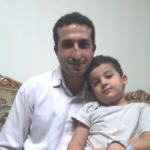
 We get involved in our own discussions and sometimes miss that others need our help. In about eight or nine hours, Pastor Yousef Nadarkhania, a convert to Christianity from the Muslim faith is scheduled for execution for apostasy. The story follows below (Google has more). Meanwhile, you can encourage Pres. Obama to intervene here, or encourage Secretary of State Hillary Clinton to intervene at 202-647-4000.
We get involved in our own discussions and sometimes miss that others need our help. In about eight or nine hours, Pastor Yousef Nadarkhania, a convert to Christianity from the Muslim faith is scheduled for execution for apostasy. The story follows below (Google has more). Meanwhile, you can encourage Pres. Obama to intervene here, or encourage Secretary of State Hillary Clinton to intervene at 202-647-4000.

